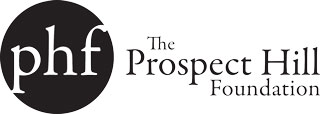
Welcome to Healing Practices! Rubin staff members and tour hosts Tenzin Gelek and Tashi Chodron introduce the exhibit, and begin the tour with an introductory prayer.
Stop 601: Introduction to Healing Practices
Welcome to Healing Practices! Rubin staff members and tour hosts Tenzin Gelek and Tashi Chodron introduce the exhibit, and begin the tour with an introductory prayer.
Stop 602: Preventative Practices
The first section of the exhibit focuses on preventative practices that support daily good health.
Stop 603: Green Tara Mantra
Tashi Chodron introduces a sculpture of this important deity of compassion and protection. Then, hear Chonyid Kunsel recite the traditional Tara mantra.
Stop 604: Parnashavari Prayers
This wild forest deity, considered an emanation of Tara, gained renewed importance to theHimalayan communitiesyduring COVID-19 as a protectress against epidemics. Tashi Chodron explains her significance, preceding her mantra recitation by Geshe Tashi Dorje.
Stop 605: Healing Practices
Tenzin Gelek introduces the secondnextsection of the exhibit, which focuses on Tibetan medicine and important Tibetan healers.
Stop 606: Medicine Buddha Mantra
GesheTashi Dorje introduces this important deity of healing, and recites the traditional Medicine Buddha prayers.
Stop 607: Padmasambhava Prayer
Khenpo Tenzin Norgay Rinpoche provides a short teaching on Padmasambhava (Tibetan: Guru RInpoche). Chant master Lama Passang recites the Barched Lamsel, a prayer to this important teacher that is meant to remove obstacles.
Stop 608: Long Life Practices
Tenzin Gelek introduces the final section of the exhibit, dedicated to practices for living a long and healthy life.
Stop 609: White Tara Long Life Mantra
Geshe Tashi Dorje teaches on the purification White Tara practices provide and sings her prayers.
Stop 610: Amitayus LongLife Mantra
Tashi Chodron explains the significance of this important long life deity and introduces Lama Passang’s recitation of the Amitayus prayers.
Stop 611: Closing Thoughts and Dedicating the Merit
Tenzin Gelek and Tashi Chodron conclude the tour with a traditional dedication of merit.
Support for Healing Practices: Stories from Himalayan Americans is provided by The Prospect Hill Foundation. General operating support of the Rubin Museum of Art is provided by the New York State Council on the Arts with the support of Office of the Governor and the New York State Legislature, as well as by generous donations from the Museum’s Board of Trustees, individual donors, and members.


